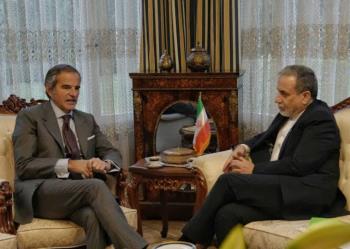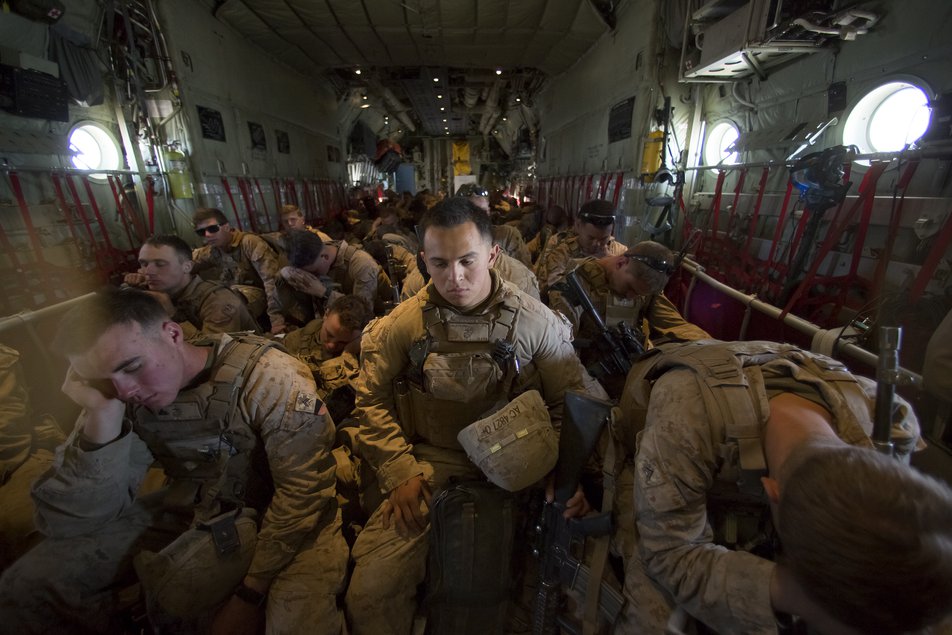Alwaght- A frustrated US President Donald Trump is facing limited options in Afghanistan’s quagmire and has wondered why his generals are not plundering the country’s minerals.
According to a Reuter report, since taking office, US President Donald Trump has shown an affinity, and perhaps even a deference, to the generals he has surrounded himself within his Cabinet and at the White House, save one exception: the war in Afghanistan.
More than a dozen interviews with current and former US officials familiar with the discussions reveal a president deeply frustrated with the lack of options to win the 16-year-old war, described internally as "an eroding stalemate."
The debate carries echoes of the same dilemma Barack Obama faced in 2009. Then, as now, odds are that Trump will ultimately send more troops, current and former officials say.
"It’s the least worst option," one former US official familiar with the discussions said, speaking on condition of anonymity, while acknowledging that with Trump, a pullout cannot be completely ruled out.
No decision on strategic vision
Trump’s defense secretary, retired General Jim Mattis, has had the authority for nearly two months to add thousands more troops to the roughly 8,400 there now (down from a peak of more than 100,000 in 2011.)
But officials say Mattis won’t use his authority until he has buy-in from Trump for a strategic vision for America’s longest war.
Sources say that the discussions - which included a high-level White House meeting on Thursday - could drag out for the rest of the summer, blowing past a mid-July deadline to present a war strategy to an increasingly impatient Congress.
Pakistan factor
Divisions have also emerged within Trump’s administration on how much to pressure Pakistan, and how quickly, in order to address Taliban militants safe havens blamed for helping prolong Afghanistan’s war. Pakistan fiercely denies allowing any militant safe havens on its territory.
Meanwhile pundits doubt if the proposed dispatch of several thousand more US troops to war-torn Afghanistan where more than 100,000 American troops failed between 2010 and 2011 to bring the Afghan Taliban to the negotiating table. Experts opine that adding 3,000 to 5,000 troops to the current modest US force of 8,400 would not make a difference.
Plundering Afghanistan’s mineral resources
Meanwhile, in a recent situation room meeting with generals and top national security advisors, President Donald Trump reportedly compared war policy to renovating a restaurant and complained that the US isn’t doing enough to exploit Afghanistan’s mineral wealth.
This is according to senior administration officials who leaked details of the “tense” meeting to NBC News. During the July 19 meeting Trump complained about NATO allies, inquired about the US getting a piece of Afghan’s mineral wealth and repeatedly said the commander of US forces in Afghanistan Gen. John Nicholson should be fired, because he is not winning the war.
Trump lamented that China is making money off of Afghanistan’s estimated $1 trillion in rare minerals while American troops are fighting the war, officials said. China already has a $3 billion contract to develop a copper mine about 25 miles southeast of the Afghan capital, Kabul.
In 2006, the George W. Bush administration conducted aerial surveys of the country to map its mineral resources. Under President Barack Obama, the Pentagon set up a task force to try to build a mining industry in Afghanistan but faced several challenges including security problems and the lack of transport infrastructure. Afghan is rich in copper at the Aynak deposit, iron ore in Khojagek, uranium, polymetalic ore, oil and gas and all these, worth trillions of dollars, continue to ignite the conflict in the country with major world powers fighting to plunder the country.
CIA and Heroin production in Afghanistan
Meanwhile, sources indicate that the heroin trade in Afghanistan is protected by the CIA, generates cash earnings in Western markets in excess of $200 billion dollars a year. It is no secret that heroin production in Afghanistan has increased manifold since the country was occupied by US-led forces in 2001.



























